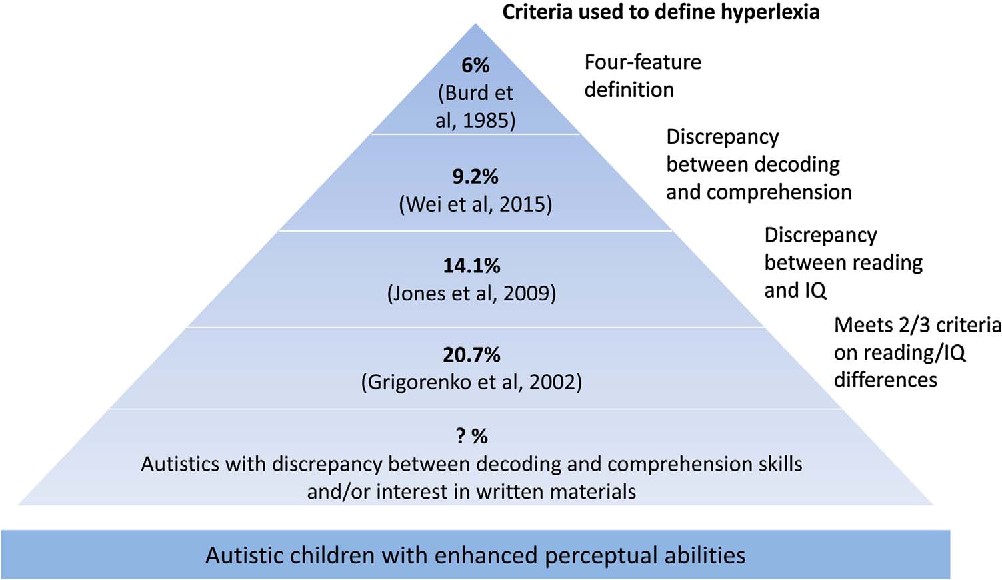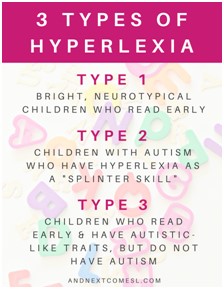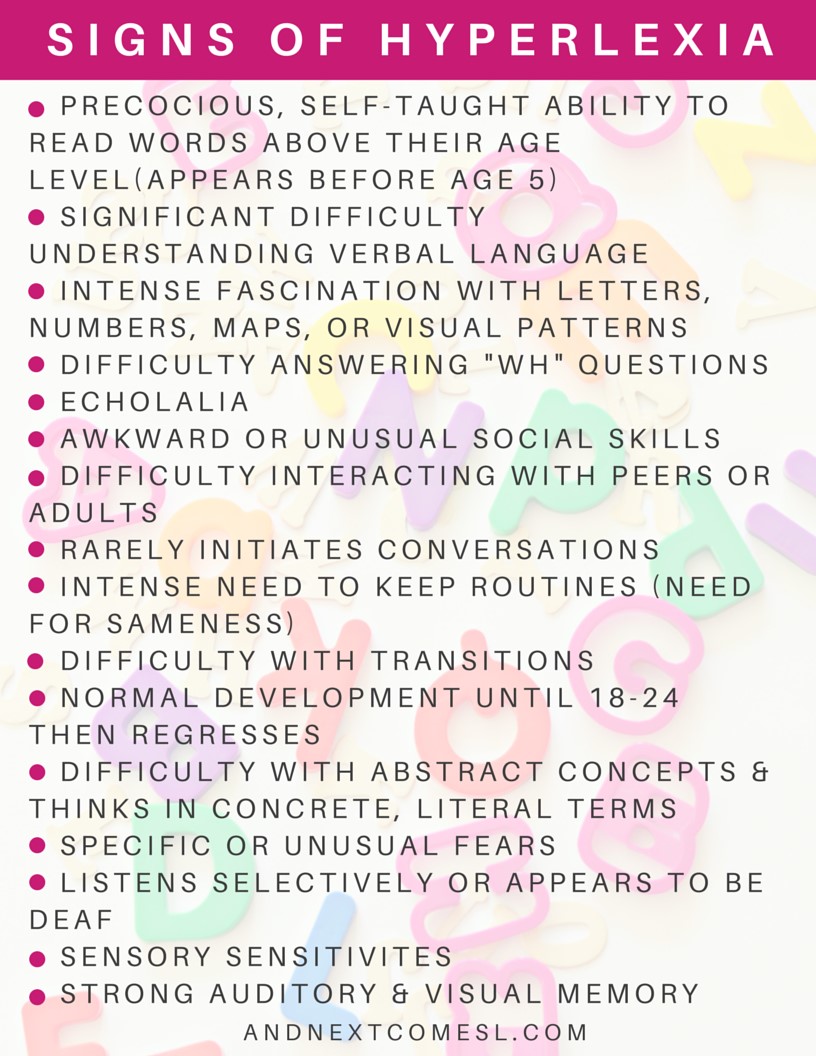
Hyperlexia is something that not many people might have heard about. Children with hyperlexia might have the symptoms of autism but are not quite autistic. Their reading is advanced beyond their age and they can read fluently without any errors. While there are challenges, these kids have certain strengths as well. And you as educators need to focus on the positives more than the negatives to help them evolve and read their true potential.
Read on to learn the types of hyperlexia, their strengths, and how you as educators can guide and support such learners.
What Is Hyperlexia?
To break it down ‘hyper’ is too much or over of a stated quality and ‘Lexia’ means word or language. Together hyperlexia is a self-taught, precocious ability to read words beyond their age level and it usually appears before the age of 5. Although hyperlexia is not officially recognized as a distinct disorder in the Diagnostic and Statistical Manual of Mental Disorders (DSM-5), it is commonly observed in individuals on the autism spectrum or with other developmental conditions.

Children with hyperlexia have an intense fascination with numbers and letters and they are more likely to spend more time with books than toys. A hyperlexic child can quickly decode sounds and words but is unable to comprehend what they are decoding or reading. Even though they have excellent auditory and visual memory, they face significant difficulties in using verbal language, understanding, and social interactions.
Types Of Hyperlexia:
There are three common types of hyperlexia usually found in children:

Characteristics of Hyperlexia:
Some of the most frequently occurring characteristics of hyperlexic students involve:

Best Ways To Support Learners With Hyperlexia
Here are the top tips to support your students if they are diagnosed with hyperlexia:
Teachers should be aware of the signs of hyperlexia, such as early reading skills, limited comprehension, and difficulty with social interactions. They might find verbal instructions or information difficult to process, hence written instructions should be kept simple.
Instead, you should collaborate with special education professionals to conduct a comprehensive assessment of the student's strengths, weaknesses, and individual learning styles. You can also work with them to develop the child’s receptive and expressive language skills to support communication.
Tailor instruction to accommodate the unique learning profile of hyperlexia learners. Emphasize visual supports, such as visual schedules, charts, and graphic organizers, to enhance comprehension.
Utilize concrete examples and visual aids to bridge the gap between reading and comprehension. Break down complex tasks into smaller, manageable steps to support their understanding and learning process.
Incorporate multisensory techniques into teaching strategies, such as combining visual, auditory, and kinesthetic modalities. Use hands-on activities, manipulatives, and interactive games to reinforce reading skills and enhance comprehension.
Encourage students to engage in sensory-rich experiences, like exploring tactile materials or listening to stories with accompanying visuals.
Hyperlexic students might need extra support to understand what to expect in different social situations and how to cope with transitions and change. Thus, you can foster a supportive and inclusive classroom environment that values neurodiversity.
Provide opportunities for social interactions, peer collaborations, and group activities to enhance social skills development. Educate classmates about hyperlexia to promote understanding, empathy, and acceptance. Social situation texts are also a great way to help them learn more about a particular situation and how to respond.
Adjust the pace and complexity of assignments to meet the needs of hyperlexic learners. Offer additional visual aids, such as highlighted text or enlarged font, to support reading comprehension.
Provide ample opportunities for self-expression through writing, as hyperlexic learners may find written language more accessible than spoken language.
Aid Your Students Towards Achieving Succes
Hyperlexia can present unique challenges and opportunities for hyperlexic learners and their teachers. But if a child is reading remarkably at a very young age, it does not automatically mean they are hyperlexic or autistic. Hence, familiarize yourself with the different conditions by undergoing Autism courses for teachers and help determine a child’s learning abilities. By understanding the characteristics of hyperlexia and implementing targeted strategies, you can create a supportive learning environment that addresses the specific needs of these exceptional readers.
Get In Touch
UK – Registered OfficeAsian College Of Teachers Ltd (UK)
27, Old Gloucester Street, London – WC1N 3AX, UK
UK Toll Free: 0-808-189-1203
www.asiancollegeofteachers.co.uk
All SEN Courses are designed, developed and created by Asian College of Teachers Ltd, United Kingdom. These courses are certified by CPD Certification Service UK and endorsed by NCC Education, UK, and Short Courses from CACHE, UK through Laser Learning UK.
Asian College of Teachers (ACT) undertakes a continuous review of its teacher training courses to ensure imparting high quality education. However, there might be circumstances outside of ACT’s control which might affect its stakeholders like if you are planning to teach in a different country, applying for a teaching license, pursuing higher studies or trying to get the certificate approved by the Ministry of Education (MoE) of a particular country then you can do so with the certificate issued by Asian College of Teachers (ACT). However, each country’s Ministry of Education (MoE) or educational bodies set certain standards that are indispensable for the pursuit of higher studies or teaching in schools in that country. So it can be a possibility that you may be able to use the certificate for higher studies or teaching purposes in one country and not in another. Therefore, we strongly recommend that you investigate thoroughly and check with the relevant authorities regarding the acceptance of the certificate issued by us before you enrol on a particular course. ACT strives to offer high-quality education and its certificates can be valuable for various purposes internationally, but still it is crucial for individuals to verify the specific recognition of the certificate in the country they intend to use it, especially for formal education or professional licensing purposes. This approach ensures that the stakeholders make informed decisions regarding their educational and career paths.
© 2026 Asian College of Teachers. All Rights Reserved. Asian College Of Teachers is a trading brand of TTA Training Pvt. Ltd (India) - CIN U80902WB2016PTC215839, Asia Teachers Training Co., Ltd (Thailand) - Registration No. 0105558193360, Asian College Of Teachers Ltd (UK) - Company Number 9939942 & Asian College Of Teachers LLC, (USA) - Federal Tax Identification Number 30-1261596
Designed by kreativewebtech